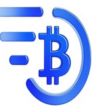The payments sector recently delivered contradictory messages regarding the state of the global economy. Visa expressed optimism, reporting that consumers were actively spending. However, French payments company Worldline painted a darker picture, warning of an economic slowdown in Europe.
Despite Visa’s reassurances, it was Worldline that captured the attention of investors. The company’s stock (ticker: WLN.France) experienced a significant plunge on Wednesday, causing ripples in the market. This reaction was observed even in U.S. stocks like PayPal Holdings (PYPL) and Block (SQ), despite their limited exposure to European markets.
On the surface, the decline in American stocks seemed perplexing. After all, Worldline is not as much of a global bellwether as Visa and is facing its own challenges related to terminating client contracts. However, Worldline’s struggles shed light on the difficult position faced by many payment stocks.
The economic outlook worldwide is growing increasingly bleak. Germany, in particular, has emerged as a pain point highlighted by Worldline. Investors are concerned that other countries will encounter similar obstacles. Although consumer spending has remained robust in the U.S., fears of an impending recession persist. Spending could be further impacted if the Federal Reserve continues to maintain higher interest rates for an extended period, as it has hinted it may do.
In contrast to this unease, Visa executives expressed confidence and stated that they are not assuming a global recession in their outlook. However, on Thursday, Mastercard (MA) released a statement revealing that growth had slowed both in the U.S. and internationally during October.
Analysts have also raised concerns about the business models of various payment stocks. The future outlook for these companies remains uncertain, with questions lingering about their sustainability and profitability.
In conclusion, while Visa’s positive outlook may offer some reassurance, the warning from Worldline underscores the challenges faced by payment stocks in a troubled global economy. The potential for spending slowdowns and the overall uncertainty in the industry makes it important to closely monitor these developments.
Visa and Mastercard Maintain Competitive Edge in Payment Processing Industry
Visa and Mastercard continue to hold a significant competitive advantage within the payment processing industry. However, emerging payment processors such as PayPal and Block face more challenges as they heavily rely on e-commerce spending. Affirm Holdings, a specialist in “buy now, pay later” services, also finds itself vulnerable to consumer spending trends.
Aside from competition, payment processors have been affected by concerns over their profit margins. Large technology companies like Apple pose a significant threat to these companies. Moreover, recent valuations in the industry may have become inflated. Fidelity National Information Services (FIS) recently sold a majority stake in payments-provider Worldpay to a private-equity firm for $18.5 billion, down from the original $43 billion price tag when the companies merged in 2019. This event has prompted discussions about the pursuit of scale through industry consolidation.
In addition, fast-growing disrupters are starting to lose their appeal. Stripe, a private payments company, recently sold shares at a valuation of around $50 billion, down from $95 billion in 2021. Similarly, shares of rival company Adyen fell nearly 40% in one day due to tougher competition in North America, which caused them to miss growth expectations.
Amidst these developments, experts question whether the panic surrounding the industry is justified. Dan Dolev from Mizuho Securities stated that the reaction of US stocks to the Worldline warning was exaggerated.
Nevertheless, a recovery in the industry is likely dependent on diminishing fears of a recession and companies demonstrating sustainable margin improvement amidst fierce competition.
Currently, investors seem to align with the perspective of Mizuho’s Dolev. On Thursday, PayPal stock increased by 0.6% following a 5% decline on Wednesday. Block experienced a 2.4% increase after an 8% decrease on Wednesday. Affirm also recovered slightly, rising by 2.1% after a 15% decline on Wednesday when Compass Point downgraded their shares to “Sell.”







